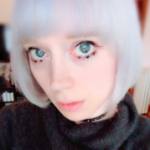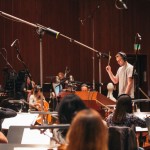Ryo Kunihiko, aka Yang Bang Ean, is the composer for NCsoft’s newest MMORPG, Aion: The Tower of Eternity. The game is currently running in Korea and China, and will soon be making its debut to North American markets (it’s currently in closed beta for us English-speaking gamers).
This score marks Kunihiko’s first major game soundtrack. For the most part, he has operated as a solo artist, and as a composer for film and anime. Being a Korean who grew up in Japan, he has the advantage of being able to cater to both nations’ markets.
After the jump, check out our exclusive interview with this unique and prolific composer. To our knowledge, this is Mr. Kunihiko’s first English-language interview on the ‘net.
OSV: Thank you for participating in this interview. First question: do you prefer to go by your Japanese name, Ryo Kunihiko, or Yang Bang Ean, which is your Korean name? Particularly, when you’re not in Japan or Korea, which given name do you use primarily?
Kunihiko: To tell you the truth, both names are the same, based on the Chinese Kanji characters, but the meaning could go in two different ways depending on the pronunciation. I was born and raised in Japan. That’s why my father chose this name. It’s a Korean name, but it’s not a strange name in Japanese either.
I had worked as a music producer in Japan and Hong Kong using “Ryo Kunihiko” before I worked in Korea. That’s why I prefer to be called Ryo Kunihiko.
OSV: It has been observed widely by people in the game industry, and other industries, that Japan and Korea are largely rivals. Do you find that your own heritage, being a Korean raised in Japan, is an advantage, or a disadvantage, in finding work as a composer in either country?
Kunihiko: I am a Korean through and through. Even while living in Japan, my nationality and citizenship stayed Korean. Even though I was born and raised in Japan, I went to a Korean school until middle school.
This unique set of circumstances allowed me to be more objective in my dealings [with people from both nations]. Having the attributes of both countries could also be understood as a weak point. Now that I am working in Korea, I feel deep down in my heart that I am Korean. However, being born or raised in Japan helps me understand their culture. I try to be more thoughtful, well-prepared, and considerate of their culture in every moment. I’m not saying that I’m perfect, but I’m trying to adjust myself to the good things in both countries. From my perspective, I’d say it’s important to think about all countries this way, not only in Korea or Japan but also other countries.
OSV: You have a prolific discography, with numerous solo albums and soundtracks. But you work primarily in film and anime score, is this correct?
Kunihiko: I don’t have any preference when it comes to genre, although, for many years, I expressed myself primarily with solo albums. This comes in contrast to film and anime music. I tried to express the film itself in soundtracks and filter my own thoughts and feelings out, so that the music I made expressed [the story of the film]. In these aspects, solo albums and soundtracks are the sum of my work. When I first began working with music, I started producing rock and soundtracks. However, in order to express myself I also became a solo artist rather than making music like a factory and not being evaluated and recognized as a success. I have been working as a solo artist for the past fifteen years. I am content to continue composing in this manner.
OSV: What differences do you notice when scoring music for a game instead of the non-interactive visual works of film and anime?
Kunihiko: As I mentioned above, as “Ryo Kunihiko,” I am best reflected in my solo albums. But OSTs of film or animation reflect their own story or atmosphere, though filtered through me. That’s the difference between them. As I worked on Aion I felt that the range of my imagination became bigger. Game music is a bit different. Even though it is not the real world, being able to develop a plot using one’s own imagination pleased me, even though it’s not the “real” world we’re talking about here.
Something to consider with game music is that one particular song is going to be played repeatedly (NCsoft mentioned this to me in advance). This is important because I want to make not only a soundtrack, but music that the listeners can connect to. But I also had to consider the particularity of game music, which is that one song will be played over and over when it’s on. It is my challenge and my goal with Aion, to be able to balance these two facets of composition for game music.
OSV: What led you to work on the soundtrack for Aion? Have you ever worked with NCsoft before?
Kunihiko: This is my first time working with NCsoft. They contacted me at the very beginning of the Aion project, in 2005. Normally, in this business, I would be contracted when the game development was finished, and then I would adjust the music to the game. However, in this case they wanted to work together from the beginning. They also expressed their opinion that they wanted to have real music, not just a soundtrack. I couldn’t imagine that what kind of game it would be at that time. A cursory presentation of the story and outline of the characters are enough for me to get interested.
OSV: You’ve cited industrial musicians such as Nine Inch Nails as an influence for your own work. However, your music generally sounds much more smooth, melodic, and ethereal than the gritty, dark music of Trent Reznor. Do you find it difficult to classify your music into genres? How would you classify the music in Aion: The Tower of Eternity?
Kunihiko: Frankly speaking, I couldn’t define the genre of my music, whether for Aion or any other project, even my solo work, because I do not analyze things that way. I never thought of it belonging to a certain genre. I’m really concentrating on expressing myself as Ryo Kunihiko. I have studied classical music since I was little, and I was stunned by progressive rock music in my teenage years. Back then, I knew that music would be in my life. I had dreamed about becoming a guitarist and joining a band. I was fascinated by bossa nova and Brazilian music. I even joined a jazz band in university.
After all of these events, and many more in my life, I quit my job as a doctor and became a musician. This might have had an effect on my music.
I do admire music very much… I don’t get bothered by genre as I enjoy all music.
I love to go to performances of orchestras and musicians that I like. I love and enjoy music that inspires me. Sometimes I feel like I am [a mixture of] Nine Inch Nails, Radiohead, and Maurice Ravel. I’m interested in the music of other musicians. Every summer, I go to as many rock festivals as I can. I will never forget one in Germany which showcased Symphonieorchester des Bayerischen Rundfunks (Bavarian Symphony Orchestra). It’s really hard to tell every single story. Music is always with me and I’m very happy about that.
OSV: Do you have intentions of breaching the international market and making yourself known among English-speaking music fans?
Kunihiko: Definitely! I want to meet all the fans from different countries. I think I could communicate with them through my work. Therefore, I always open my mind for them. I want to reach them through my songs.
OSV: What are your personal favorite pieces from the Aion score?
Kunihiko: Umm… it’s hard to tell…. All of them are like my children. It’s really hard to choose only one among them. I have more affection for “The Wings of Knight.” It was the main title song for the game, at first. However, this changed as the game development progressed. I spent a long time working with this particular piece, and personally, I like it.
OSV: Among your entire discography, which album would you recommend first to a new listener that discovered you through playing Aion and wants to hear more of your music?
Kunihiko: I’m working on a solo album to be released this September. It’s my sixth album in five years. I’ve waited a long time and worked hard for it. I hope to have new listeners. Of course, I want to recommend the Aion OST also.
OSV: Do you intend to continue writing music for games?
Kunihiko: I will continue to write not only for games, but for other genres as well, for as long as I am inspired to work.
OSV: Would you like to write music only for Korean companies, or also Japanese, American, and other companies?
Kunihiko: As I said before, I am open-minded and I work hard in every single moment. Also, I hope to work in the US and Europe.
OSV: Thank you again for your time.
Kunihiko: Thank you!
—
We at OSV would like to thank Ryo Kunihiko, as well as his manager “Lim” and everyone at Endorf Music in Korea for working with us on this interview. Below you’ll find a “making of” video for Aion‘s theme song, “Forgotten Sorrow,” featuring Ryo Kunihiko (composer) and Yozoh (vocalist). Also, be sure to check out Kunihiko-san’s official sites (Japanese and Korean), as well as his MySpace page.
Tags: Aion, Interviews, Korea, Korean, NCsoft, Ryo Kunihiko, Yang Bang Ean











































Kunihiko’s a solid composer and with him working on Aion, I think we can expect great things out of it. I particularly love the music that he’s used for the anime series Twelve Kingdoms since it does such an excellent job in conveying the action scenes as well as capturing the mood and atmosphere of the setting (which he also did quite well with in Victorian Romance Emma).
Wow, that piano at 0:42 is absolutely amazing. Reminds me of Kim Junsung’s piano work on Granado Espada. Beautiful.
Hi, I wonder if you could tell me how I can contact Ryo. I would like to use one of his compositions in my school concert next term and it will be helpful if I can find the sheet music.
“Rainbow Leaves”Ryo Kunihiko feat. Origa
Many Thanks,
Steve Waters
UK
Ryo Kunihiko
Please may I ask if you know why “Rainbow Leaves” was written?
Was it just an album track (Piano Fantasy)
Thanks